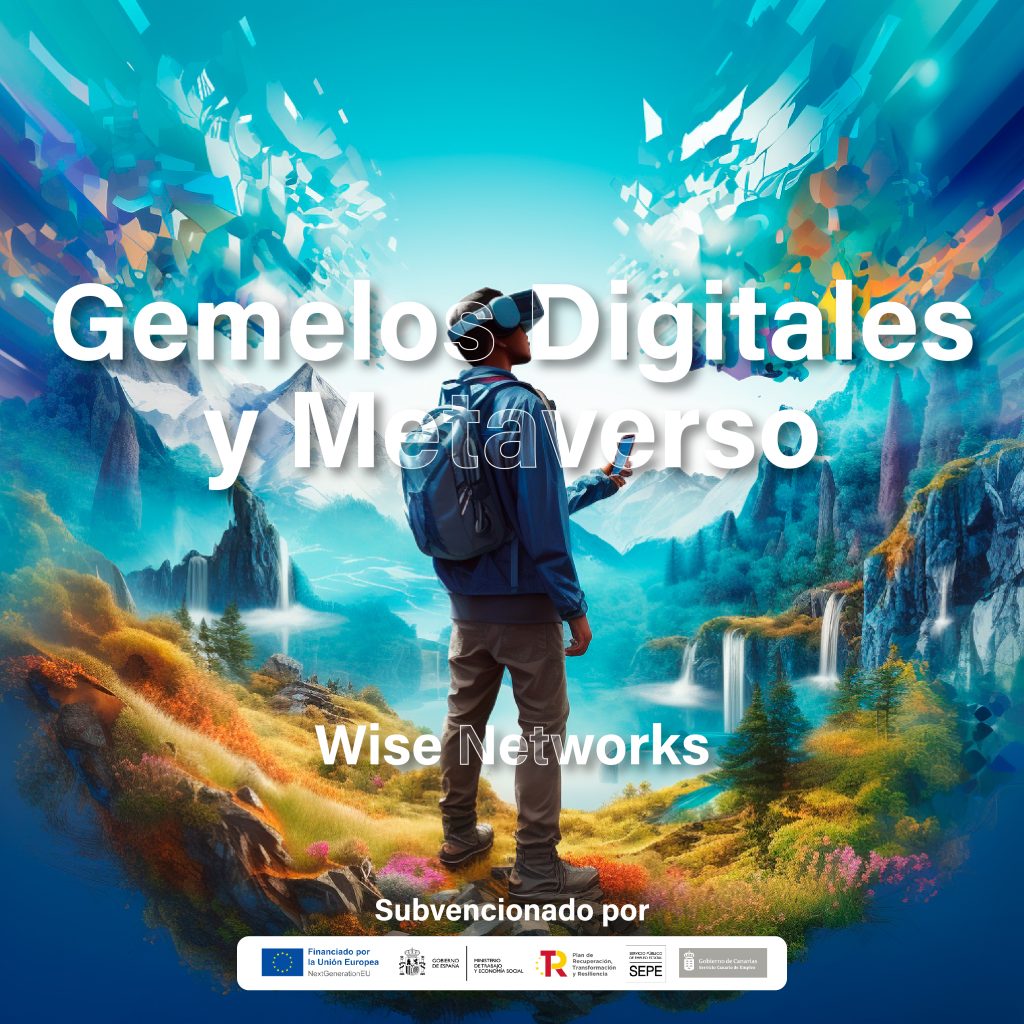Project
Project Description

Wise Network S.L.U. (hereinafter, WN) is a company based in Las Palmas de Gran Canaria founded in the same city on 24 July 2020.
During practically these two years, the company has been focused on researching and developing solutions to bring to the market, whose objective is to develop disruptive solutions born from R&D combining organisational neuroscience, extended realities and artificial intelligence.
WN is a company that designs, develops, coordinates, dynamises and commercially exploits the development of R+D+i projects, with the means and qualified professionals to do so. Its mission is to develop intelligent solutions that help change the world.
The vision is to be a world leader in training systems and experiences, using extended realities, artificial intelligence and organisational neuroscience.
Our company has a fully technological character. Its current assets are solutions under development as a result of R&D investments made in collaboration between shareholder companies and the University. The company’s current technological base, for which it holds all the intellectual property and exploitation rights, is mainly composed of a platform for voice and VR assistance to the elderly and a platform for marketing, experience and tourism intelligence through voice and VR.
Today, the concept of the Metaverse is beginning to take on an increasingly visible role within multiple environments and sectors. Large companies in the technology sector, such as Microsoft or Meta (formerly Facebook), are devoting more and more resources to researching and creating virtual environments (VE) based on real environments (known as Digital Twins) within a metaverse with which users can interact in a simple, intuitive and realistic way. In fact, the inclusion of hyper-realistic avatars (Metahumans) within these metaverses is also being studied with the aim of creating fully immersive and interactive experiences, increasingly blurring the line between the real and the virtual. It is also important to mention that this new trend is being applied to various sectors beyond the technology sector itself, one of these cases being the tourism sector.
The tourism sector is in the early stages of adopting this new technological paradigm, ideal for trying to recover the economic momentum lost due to the global pandemic caused by COVID-19. According to the United Nations World Tourism Organization (UNTWO), this sector has been one of the hardest hit by the pandemic, with tourist arrivals to Europe falling by 72% in the first half of 2020. The same organisation reported, by the end of 2021, economic losses within the tourism sector of close to a trillion dollars, which shows the extent to which the losses have been damaging to the sector.
Today, these effects can still be seen in the Spanish tourism sector, where current figures do not match those obtained in the years prior to the pandemic.
According to the National Institute of Statistics, the average Spanish tourist stays an average of 4 days, mostly for family visits. This fact, together with the reduction in the number of trips compared to 2019, presents a potential problem for tourist areas where leisure, nature, sun and beach are the main reason for the stay. This, together with the above data, shows that some kind of incentive or stimulus is needed to reactivate the confidence of the national tourist with respect to destinations with a more marked focus on leisure.
All of the problems outlined above highlight the need to find new ways to encourage Spanish tourists to make leisure trips and, in turn, to spend more in tourist areas. The digitalisation of services and access to new technologies, together with the existence of hardware devices capable of instantly introducing a user into a highly realistic virtual experience, provide highly influential and far-reaching means of advertising content or locations. This, coupled with recent trends in the creation of metaverses and digital avatars similar to their real-life counterparts and the current sophistication of artificial intelligence, makes possible the creation of highly realistic virtual experiences capable of showing customers the real aspect of a destination they intend to visit with a virtual travel agent.
This project aims to investigate and analyse the impact of the use of the metaverse paradigm on a massive scale on the tourism, education and senior citizen sectors, taking into account its effects on the different factors that shape them, for example, on travel, visits or bookings.
El objetivo general del presente proyecto es analizar el impacto de sistemas de mejora para la experiencia del cliente basados en la incorporación de elementos de vanguardia tecnológica, en la digitalización de servicios y en data science, trabajando en todo momento con investigaciones de validación de la eficiencia de la RV en los tres entornos en los que se enfoca este proyecto: turismo, formación y personas mayores.
En primer lugar, se pretende analizar el impacto que supondría la implementación de una aproximación basada en el paradigma del metaverso, utilizando para ello gemelos digitales y avatares metahumanos hiperrealistas sobre el sector turístico, analizando sus efectos sobre diferentes subáreas como el desplazamiento, las visitas o las reservas, además de integrar un sistema de empleado aumentado en hoteles, potenciado por avatares metahumanos y realidad aumentada con el objetivo de mejorar las capacidades, productividad y bienestar de dicho empleado.
En segundo lugar, se pretende integrar un sistema de formación basado en entornos virtuales de gran realismo en el que un usuario pueda entrenarse de forma virtual en la resolución de problemas reales adaptados a ciertos trabajos, utilizando para ello problemáticas comunes y ejercicios de entrenamiento de habilidades. Dichos ejercicios serán completamente interactivos, ofreciendo al usuario la capacidad de experimentar los diferentes resultados de sus decisiones en un entorno seguro y controlado.
Por último, en tercer lugar, se pretende analizar el impacto de la aplicación de las tecnologías de realidad virtual e hiperrealismo sobre el entorno de las personas mayores. Para ello se desarrollará un sistema en el que puedan realizar actividades, ver imágenes y saludar a sus seres queridos a través de aplicaciones y de entornos virtuales, recogiendo en todo momento sus reacciones e impresiones para así validar los resultados.
Resultados previstos:
Los resultados que se esperan obtener de este proyecto pretenden demostrar que el desarrollo de las cuatro plataformas digitales planteadas y el suministro de las herramientas tecnológicas para acceder a las mismas suponen una mejora respecto a los paradigmas actuales, siendo éstos:
- Tourist metaverse: Validation of the efficiency of virtual reality, metaverse, digital twins and hyperrealistic avatars using tourist-oriented software.
- Augmented employee: Validation of the benefits obtained through the implementation of a hotel employee-oriented app based on augmented reality to improve the skills, productivity and well-being of employees, with a corresponding positive impact on the tourist experience.
- VR training: Validation of the use of virtual reality as a training tool in the labour sector to solve problems and situations that may arise during work performance.
- Platform for the elderly: Validation of a system that brings the elderly closer to the new technologies of virtual environments and virtual reality and their corresponding positive impact on this group, improving their quality of life and well-being, as well as allowing them to monitor their state of mind.

Beneficiary entity
Wise Networks S.L.U.

Dates
Start date: March 2023
Finish date: March 2024
Project duration
12 months

File Nº
5/39/2022-0923131539

Subsidised by:



